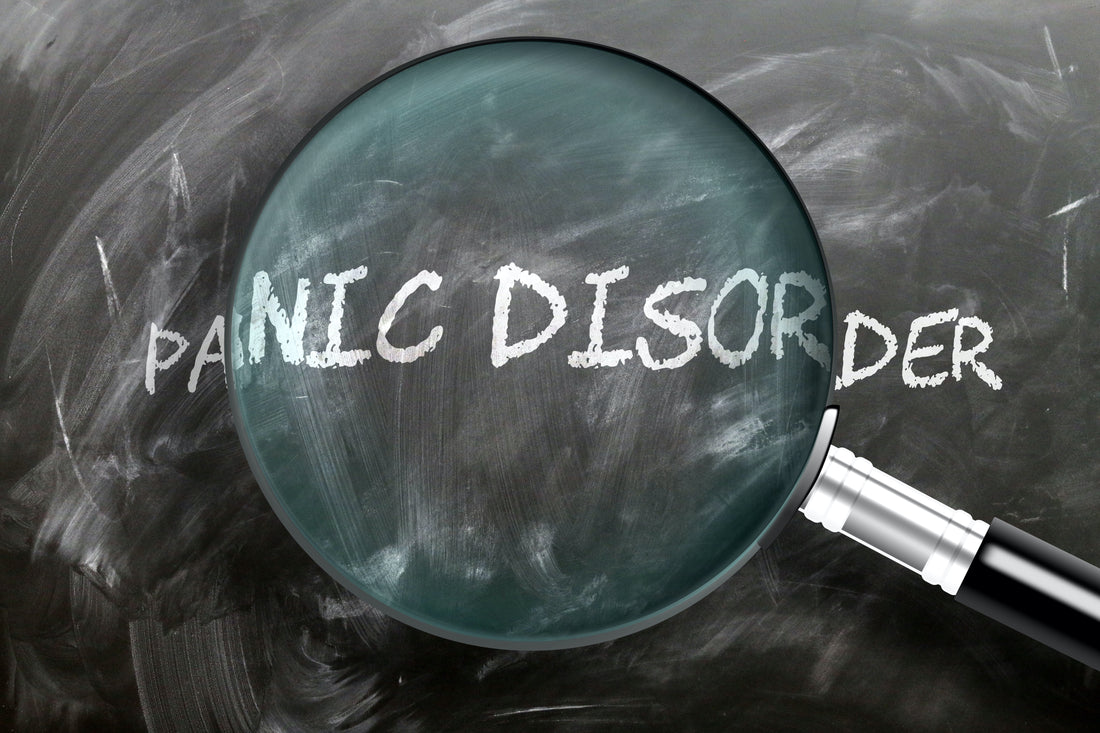If you’ve ever experienced a surge of overwhelming anxiety and fear, perhaps accompanied by a pounding heart or shaky hands, then you may be all too familiar with a panic attack. According to the Mayo Clinic, many people have just one or two panic attacks in their lifetime, but if they occur frequently and you find yourself fearing that the next one’s just around the corner, then you may be suffering from panic disorder, a mental health condition that affects around 2.7 percent of the U.S. population.1, 2 Panic attacks can come out of nowhere and be frightening even if you’ve had one before, but there are ways to cope.
Read on to learn more about the symptoms of panic attacks and panic disorders and find out how to get help.
Panic Attack & Panic Disorder Overview
A panic attack is characterized by sudden intense fear with no apparent danger. It can be accompanied by a variety of physical symptoms like a racing heart and tremors and happen unexpectedly, whether you’re in a triggering situation or fast asleep.3 If they happen often, panic attacks may signify panic disorder, which can dramatically impact your quality of life. Fortunately, most people who have panic disorder experience relief with treatment and self-care.
Signs of a Panic Attack vs Panic Disorder
You may experience a wide range of symptoms during a panic attack, including:
- A sense of impending doom
- A detached or unreal feeling
- Tingling or numbness
- Shortness of breath
- A racing heart
- Trembling or shaking
- Lightheadedness or dizziness
- Headache
- Chest pain
- Abdominal cramps
- Nausea
- Hot flashes or chills
- Sweating
- Fear of death or loss of control
If you have four or more panic attacks and you find yourself worrying about the next one, you may have panic disorder.4 Panic disorder typically starts in the teen years or early adulthood and the condition affects women twice as much as men.5 People who have panic disorder also develop severe anxiety and may avoid situations where they fear they might have another panic attack.
Potential Causes
According to the American Psychological Association, there is some evidence for a genetic predisposition; if there is a history of panic attacks in your family, you may experience them at some point in your life, especially during stressful situations.6 Some other possible causes for panic attacks include:
- Living with high stress for an extended period of time
- Physiological changes in the brain7
- An overactive thyroid8
- Recent trauma or a major life change
- Extremely high caffeine intake9
- Tobacco use10
- Heavy alcohol or drug use11
- A history of sexual or physical abuse12
Left untreated, panic attacks and panic disorders can have severe side effects. You may develop specific phobias, such as a fear of social situations or driving, and you may start to perform poorly at work or school. You are also at risk of developing another mental health disorder, such as depression or anxiety. People with untreated panic disorder may also start to self-medicate with alcohol or drugs, which can lead to even more health issues.
Lifestyle Changes You Can Make To Ease Symptoms
If you have recurrent panic attacks, you should see your doctor to rule out a medical condition that could be causing your symptoms. Many people also experience fewer panic attacks when they make certain lifestyle changes. Some tips to try:
- Find a therapist who specializes in panic attacks and talk through your experience. You may also benefit from an online or in-person support group for people with panic attacks or panic disorder.
- Connect with family and friends; studies show that social support may reduce the severity of symptoms in people with panic disorder.13
- Avoid substances that can cause panic attacks or make these attacks worse. These include cigarettes, alcohol, caffeine and recreational drugs.
- Get enough sleep at night, especially if the anxiety associated with panic disorder leaves you feeling fatigued. Most adults need about eight hours of solid rest every night.
- Begin a regular workout routine if you don't exercise at least a few times a week for 30 minutes each session. Even taking a walk can help improve your mood and reduce anxiety.
- Practice mindfulness and relaxation techniques that help you feel calm and centered. Meditation, yoga and breathing exercises may offer relief.
- Limit your screen time; excessive screen time has been linked with anxiety, depression, ADHD, and obesity.14
If you find that you still need support, we recommend trying Brillia, a non-prescription medication. that targets anxiety symptoms without harsh, synthetic chemicals or harmful side effects associated with popular anti-anxiety medications. Brillia’s active ingredient consists of antibodies to the S100 protein, which plays a crucial role in mood regulation and neuroplasticity.. Without masking your personality or affecting any other systems in the body, Brillia reduces anxiety symptoms by locating and attaching to the S100B protein and changing its shape to balance the mood. The process is so gentle, safe, and impactful that it can be used by children as well as adults.
Learn more about how Brillia works and visit the Brillia blog to find more resources on how to manage anxiety through healthy lifestyle choices.
 A whole bunch of support right in your inbox.
A whole bunch of support right in your inbox.





